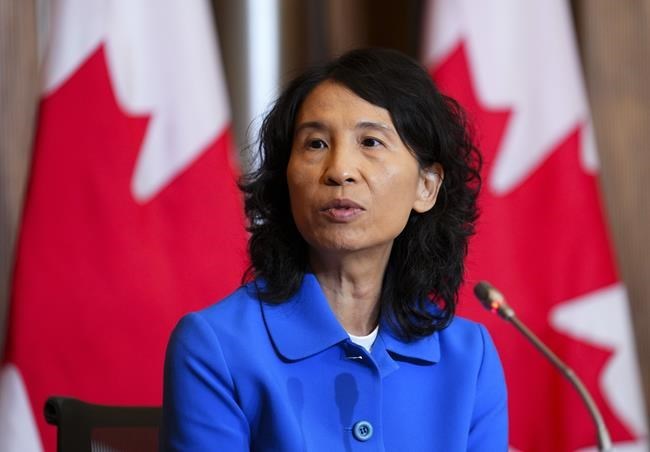The number of confirmed measles cases in sa���ʴ�ý so far this year is more than three times higher than all infections recorded in 2023, the country's chief public health officer said as she urged people to ensure their vaccinations are up to date.
The Public Health Agency of sa���ʴ�ý is aware of 40 confirmed cases across the country in 2024, Dr. Theresa Tam said on Wednesday.
Tam said she is concerned that not enough school-aged children have been adequately vaccinated against the highly contagious virus.
"I strongly advise parents or caregivers to ensure that children in their care have received all measles vaccines according to schedule," she said in an interview.
Those who aren't sure about their child's vaccination history should speak to their health-care provider or local public health agency, Tam said.
The timing of the doses varies by province and territory, but generally children get their first doses of measles, mumps and rubella (MMR) vaccine at 12 to 15 months of age and then a second dose before they start school.
"The measles-containing vaccines are very effective. (The) benefits far outweigh the risks," Tam said.
"There's no reason why children — who could get quite seriously sick from this illness — should be getting it because it's vaccine-preventable," she said.
Quebec has had 28 confirmed cases this year — the most in the country, Tam said. Ontario has had 10 cases; sa���ʴ�ý and Saskatchewan have had one case each.
The majority of people who have been infected with measles in sa���ʴ�ý were unvaccinated and most of them were children.
Seven people have been hospitalized due to measles this year, Tam said.
She said although some people have been infected while travelling internationally, others have caught measles in sa���ʴ�ý.
The Public Health Agency of sa���ʴ�ý has previously urged people to check their measles vaccination status before the busy March Break travel season.
On Wednesday, Tam said it's difficult to tell at this point if March break travel has contributed to an increase in cases, but wanted to get the message out again as people are preparing for family gatherings and religious celebrations.
The rise in measles this year is likely caused by increased measles activity worldwide, combined with "suboptimal vaccine uptake nationally," Tam said.
She said there may have been a decrease in access to routine vaccinations during the COVID-19 pandemic, but local public health agencies have been "trying very hard to do catch up."
There has been a recent "upswing in public interest in getting the vaccine, which is great," she said.
Symptoms of measles include fever, red watery eyes, runny nose and a cough at first. Those symptoms are followed by a red rash that starts on the face and moves to other parts of the body, the Public Health Agency of sa���ʴ�ý said in a statement.
"Measles is more than a rash. Infection can lead to rare, but severe complications, including deafness and brain injury caused by inflammation of the brain, and can even be fatal," the statement said.
A 95 per cent vaccination rate is needed to give communities herd immunity against measles.
The most recent available national data, which is from 2021, showed that 79 per cent of children had two doses of measles vaccine by age seven.
This report by The Canadian Press was first published March 27, 2024.
Canadian Press health coverage receives support through a partnership with the Canadian Medical Association. CP is solely responsible for this content.
Nicole Ireland, The Canadian Press



